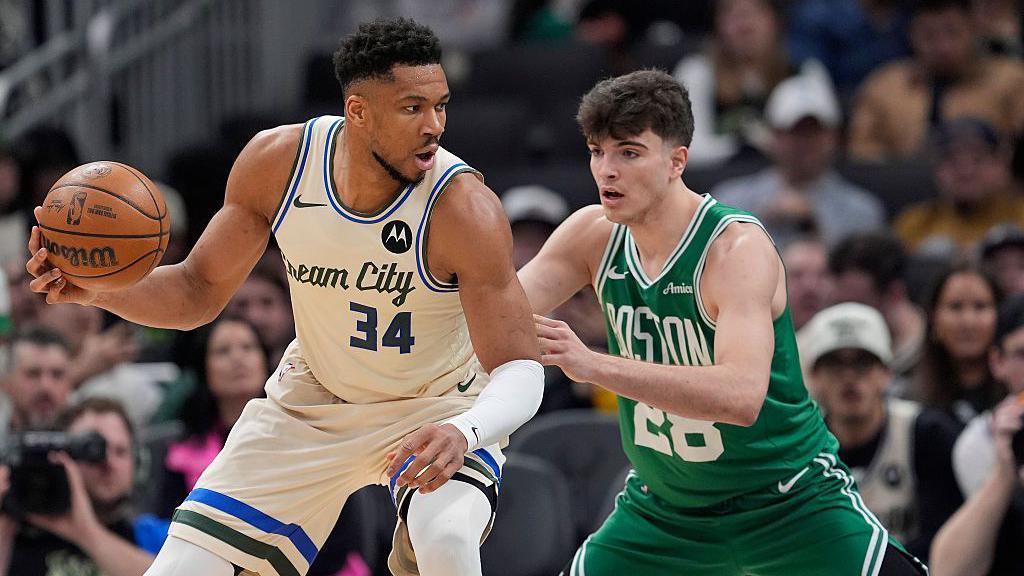For Doron Sheffer, the journey that first made an unforgettable pass through UConn in the 1990s, goes on. It has been a search for inner peace that has taken him all over the world, with a message of hope. Always, there is hope.
“It’s a never ending journey, the bottom line for me is to find peace within myself,” Sheffer said Friday, in an interview with The Courant. “It’s something we are all looking for, even if we are chasing money and fame.”
Sheffer, 53, who came from Israel to star in the backcourt for UConn men’s basketball from 1993-96, first traveled the world and found the calm to change the trajectory of his life as he recovered from cancer in 2002. After ending his long pro career in his homeland, with Maccabi Tel Aviv, Sheffer and his wife, Talia, later founded Hyuli, a natural health center in Israel. He has been a prolific lecturer and writer. His second book was translated into English in 2022 as “Mensch VP: Becoming the Most Valuable Player in the Game of Life.”
‘Soccer is the universal language’: U.S. men’s deaf national team ready for big stage at Rentschler
Front and center for the Sheffers is their current project, From Grief To Growth, a retreat in Israel that is a guided healing project for victims and others traumatized by the war in Gaza, where the recent ceasefire has been holding.
“The work is just starting, we have a lot of problems to solve,” Sheffer said. “It is crucial to find a way to have a peaceful life. … because wars, you cannot really win, we have enough of them.”
Sheffer brought an optimistic message to UConn, where he appeared this week at the Dodd Human Rights Summit. The keynote discussion featured 1968 Olympians Tommie Smith and John Carlos, who, wearing black gloves, thrust their fists into the air during the national anthem and medals ceremony in Mexico City, an iconic moment in the civil rights movement of the 1960s. Sheffer spoke Friday with other current and former UConn athletes on the intersection of sports and human rights.
“I am a believer, I am a Jew and one of the biggest messages we have to bring to the world is that there is always hope,” Sheffer said.
His theme was personal accountability. Making changes in one’s own life, he reasons, a healthier lifestyle, relationships, inner peace, can help change the world.
“We are not angels, we are human beings,” he said. “We are meant to fail, to make mistakes. If we blame each other, it is hell. If we take responsibility, it is bonding, it is brotherhood, it is heaven. … Everyone wants to be more happy, feel less anxiety, less fear, with body and mind health.”
Sheffer visited with former coaches Jim Calhoun and Tom Moore, and some of the current players before leaving Storrs, heading to Fairfield County to make Shabbat at sundown, then planned several stops in New York City to help raise awareness and funds for the From Grief To Growth project.
The Sheffers launched the program of retreats shortly after the Oct. 7 attacks in 2023. Sessions last four days with up to 12 participants. The goal, according to Sheffer’s website, is to teach “natural and accessible ways to create balance and to further strengthen the spiritual mindset, tools to handle the new reality around us, to find the strength to rise stronger from the crisis, to function at full potential once again, and most importantly, to choose life.”
While Sheffer’s professional basketball career was interrupted by his illness, his quest for spiritual peace first took him to India, Costa Rica and South America in the early 2000s, changing he trajectory of his life’s journey. He wrote an autobiography in 2013, his second book in 2017. Sheffer played on and off before retiring in 2014 for good and settling with his wife and children in an agricultural village in northern Israel.
Dom Amore: Azzi Fudd ‘owning her space’ to begin her last dance with UConn women
“(The work I do) is much bigger than the games we play,” Sheffer said. “I find much more satisfaction in what I do.”
During his career at UConn, he topped 1,000 points and 500 assists in three seasons, teaming with Kevin Ollie and Ray Allen to form some of Jim Calhoun’s most formidable teams, winning three straight Big East championships, coming just short of the Final Four in 1995. Sheffer’s takeaways from those days are still part of him.
“One of the things you can learn from basketball is unity,” he said. “People from different backgrounds can get together and get along. Fans even come together.”
And if it can happen in basketball, why not in other areas of life? … One person at a time.
“It’s the butterfly effect,” he said. “If we live our lives in a more healthy way, physically and spiritually; personal responsibility is the best way to make an impact. To set a personal example is the best way to change the world. With peace and tolerance, we don’t have to talk too much. We act.”
Originally Published: October 24, 2025 at 7:59 PM EDT
























